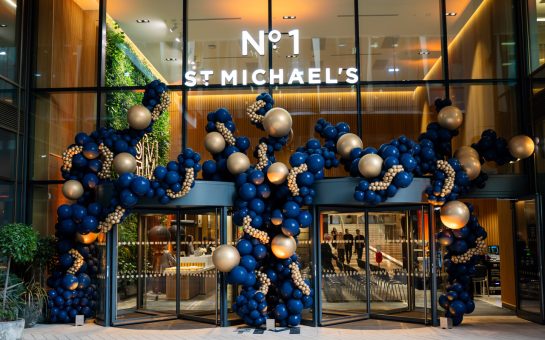The link between alcohol and anti-social behaviour in Manchester is a cultural problem and needs to be tackled by changing assumptions of why people drink, according to the leader of the city’s Street Pastors scheme.
The region has one of the highest incidences of reported anti-social behaviour in the country, and at least one in every ten calls to Greater Manchester Police relating to anti-social behaviour references the consumption and effect of alcohol.
The statistics, as reported in The Greater Manchester Alcohol Strategy 2014-2017, emphasise a growing concern over the link between alcohol consumption and high incidences of anti-social behaviour.
Paul Keeble, co-ordinator of the Street Pastors scheme, says he is aware that part of the work he does is dealing with a ‘symptom’.
He told MM: “There is an issue of the culture that leads to that symptom: the myth that in order to enjoy yourself you need to consume liquid that contains a certain substance. Some serious questions need to be asked.
“We need to challenge the assumptions of why we consume alcohol, so people are not blindly going along with ‘this is what you do.’
“Students, in particular, think a box you tick as part of student life is getting slaughtered on a Friday night. Someone needs to say, ‘well not necessarily.’”
Earlier this year, a report from the Office of National Statistics stated that 38 per cent of violent incidents in Greater Manchester that result in an injury involve alcohol, and one in three domestic incidents are alcohol related.
Assistant Chief Constable, Garry Shewan of Greater Manchester Police, told MM previously: “Greater Manchester has many areas which have a thriving nightlife.
“But unfortunately long opening hours of pubs and clubs and the easy availability and cheap cost of buying alcohol from supermarkets has meant more people are getting excessively drunk.
“This is causing a nuisance and harm to themselves and others.
“This results in an increase in demands on police, health services, and local councils who are faced with managing both the risks to individuals and the damage that is caused to lives and our streets.”
The number of people admitted to an NHS facility for alcohol-based treatment last year came close to 10 million, costing Greater Manchester a reported £1.2 billion.
Charity Alcohol Concern believes that the Government has a responsibility to put greater emphasis on alcohol education based programs and to bring in a minimum unit price for alcohol, which could save the nation billions in health spending.
The charity’s chief executive, Jackie Ballard, said: “The NHS is now facing an intolerable strain from alcohol-related illnesses. This is not just from readily-identifiable causes such as A&E visits and admissions for liver disease, but from a significant number of other conditions in which alcohol plays a major, but often underappreciated part.
“We urgently need action to prevent alcohol misuse. The first and most effective of which is for the Government to implement a minimum unit price, which has the potential to save the economy millions, and most importantly save lives.”
Image courtesy of Marc93, with thanks.



